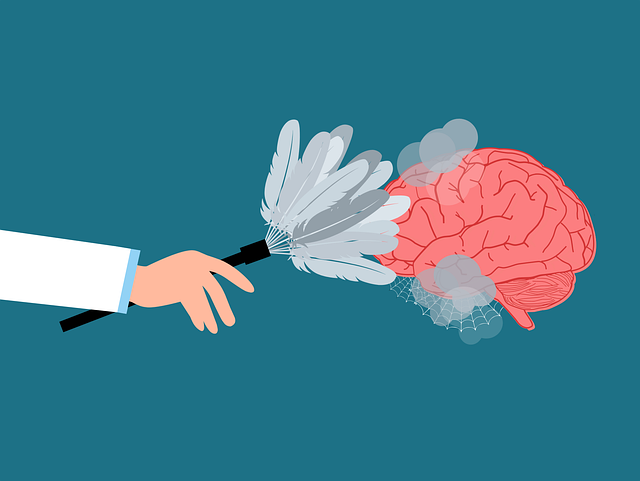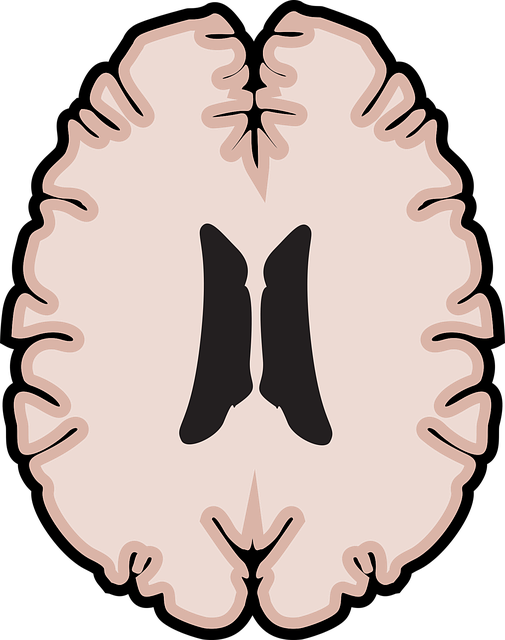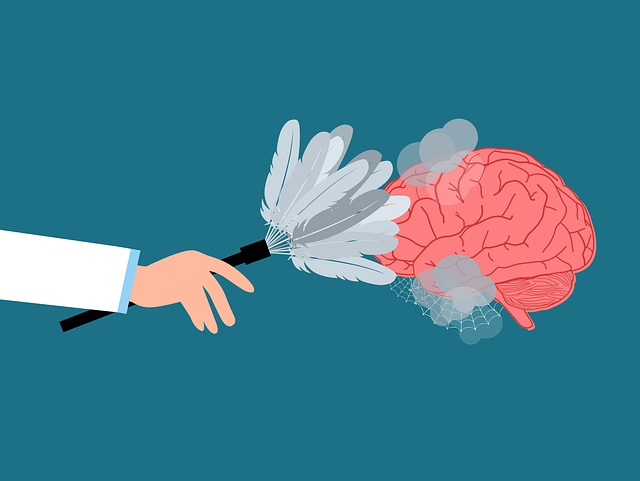Adolescence in Arvada presents unique challenges, including academic pressure, peer dynamics, family issues, and excessive technology use, all of which contribute to stress. To address these issues effectively, Arvada Adolescent and Teen Therapy (AAT) emphasizes the importance of identifying specific stressors and implementing targeted interventions such as self-care routines, emotional healing therapy, and open communication strategies. Engaging workshop content, combining theoretical knowledge with practical exercises, is crucial for AAT sessions to create impactful outcomes. The program prioritizes a supportive environment through inclusive facilitation techniques, active listening, and empathetic responses. Measuring success involves post-workshop assessments and long-term follow-ups to ensure participants maintain their progress in stress management.
“Stress management workshops play a pivotal role in empowering adolescents and teens, offering them tools to navigate life’s challenges. This article explores strategies for organizations seeking to host impactful sessions. We delve into understanding adolescent stress, from identifying common triggers to designing engaging workshop content that fosters positive change. Learn how creating a supportive environment and effective facilitation techniques can enhance participation. Additionally, discover assessment methods to measure success and long-term benefits, ensuring your workshops resonate with Arvada’s adolescent and teen therapy needs.”
- Understanding Adolescent Stress: Identifying Common Triggers and Challenges
- Designing Effective Workshop Content: Strategies for Engagement and Impact
- Creating a Supportive Environment: Facilitation Techniques and Group Dynamics
- Measuring Success and Long-Term Benefits: Assessment and Follow-Up Strategies for Workshops on Stress Management
Understanding Adolescent Stress: Identifying Common Triggers and Challenges

Adolescence is a period of significant growth and change, often accompanied by heightened stress levels. Understanding the unique stressors faced by teens in Arvada and beyond is crucial for effective support. Common triggers include academic pressure, peer relationships, family dynamics, and the constant exposure to social media and technology. Many adolescents struggle with managing these challenges, which can lead to anxiety, depression, and other mental health issues.
Identifying specific stressor categories is essential for developing targeted interventions. For instance, fostering Self-Care Routine Development for Better Mental Health can empower teens to cope effectively. Additionally, facilitating Emotional Healing Processes through therapy sessions and group support can help them navigate their feelings and build resilience. Communication Strategies are another vital tool; encouraging open dialogue between parents, guardians, and educators can provide a supportive network, ensuring adolescents feel heard and understood during this demanding phase of life.
Designing Effective Workshop Content: Strategies for Engagement and Impact

Designing effective workshop content is key to achieving engagement and impactful outcomes for participants at Arvada Adolescent and Teen Therapy workshops. Incorporating interactive activities, real-world examples, and relatable case studies ensures that the session resonates with teenagers and adolescents. Facilitators should use a mix of theoretical knowledge and practical exercises to cater to different learning styles. Engaging discussions, role-playing scenarios, and group activities can help break down complex topics like stress management and mood regulation into digestible portions, fostering a safe and supportive environment for open communication.
By weaving in stories and experiences from the target audience, workshops become more relatable, reducing the Mental Illness Stigma Reduction Efforts while encouraging active participation. Incorporating mindfulness exercises or relaxation techniques can also help demonstrate practical tools for managing stress in daily life. These strategies not only enhance learning but also ensure that participants leave with tangible skills they can apply to their lives, fostering a sense of empowerment and resilience.
Creating a Supportive Environment: Facilitation Techniques and Group Dynamics

Creating a supportive environment is paramount for successful stress management workshops. At Arvada Adolescent and Teen Therapy, we understand that fostering an inclusive atmosphere encourages participants to open up and actively engage in the process. Through careful facilitation techniques, our therapists create a safe space where teens feel comfortable sharing their experiences without fear of judgment. This involves active listening, empathetic responses, and using inclusive language to make every voice heard. Group dynamics play a crucial role here; we facilitate meaningful interactions that promote camaraderie among participants, enabling them to learn from each other’s strengths and resilience.
Effective facilitation goes beyond just guiding discussions. It involves employing various interactive activities and exercises tailored to enhance mental well-being. By incorporating these techniques, we aim to boost confidence and encourage positive thinking—key aspects addressed in our Mental Health Policy Analysis and Advocacy initiatives. The goal is to empower teenagers with practical tools to manage stress effectively while instilling a sense of self-assurance that can positively impact other areas of their lives.
Measuring Success and Long-Term Benefits: Assessment and Follow-Up Strategies for Workshops on Stress Management

Measuring the success of stress management workshops is crucial for understanding their long-term benefits and impact on participants’ well-being. Post-workshop assessments, including surveys and interviews, can gather valuable insights from attendees about their experiences and perceived improvements. These tools allow organizers to evaluate the effectiveness of various strategies employed during the sessions, such as empathy building techniques, anxiety relief exercises, and crisis intervention guidance. By collecting qualitative and quantitative data, therapists at Arvada Adolescent and Teen Therapy can identify what works best and make necessary adjustments for future workshops.
Long-term follow-up is also essential to ensure that workshop participants maintain their progress and develop resilience in managing stress over time. Regular check-ins or a series of assessment sessions after the initial program can help track changes in mental health, stress levels, and coping mechanisms. This ongoing evaluation not only provides valuable data for improving future workshops but also offers support and guidance for individuals who may continue to face challenges related to anxiety and crisis situations.
Stress management workshops play a pivotal role in empowering adolescents and teens to navigate their challenges. By understanding common triggers, designing engaging content, creating supportive environments, and measuring long-term benefits, organizations like Arvada Adolescent and Teen Therapy can significantly impact young lives. These strategies foster resilience, providing valuable tools for managing stress and enhancing overall well-being. Through such initiatives, we contribute to a healthier, more resilient generation.














